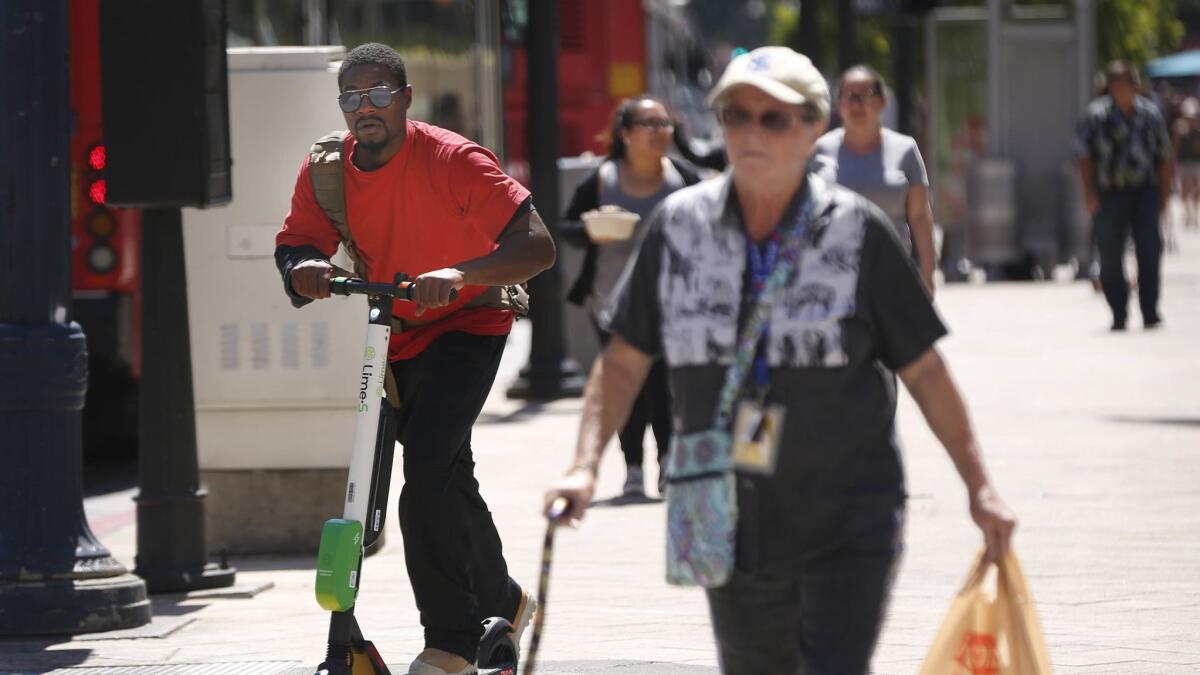Disability advocates target city of San Diego and scooter companies in lawsuit

- Share via
Reporting from San Diego — The city of San Diego and electric scooter brands Lime and Bird are the targets of a lawsuit filed in federal court alleging the ubiquitous motorized vehicles are violating the Americans with Disabilities Act by impeding and blocking access to city streets and sidewalks.
The suit filed by the group Disability Rights California and three disabled San Diego residents is seeking class-action status for people with mobility or sight disabilities who navigate sidewalks, curb ramps and public spaces also occupied by scooter riders.
“Without full use of the sidewalk and curb ramps at street intersections, persons with mobility and/or visual impairments have significant barriers in crossing from a pedestrian walkway to a street,” the suit alleges. “This is exacerbated when the sidewalk itself is full of obstructions and no longer able to be fully and freely used by people with disabilities.”
The suit accuses the city of not maintaining streets and sidewalks in a way that doesn’t discriminate against the disabled and allowing “dockless scooters used primarily for recreational purposes to proliferate unchecked throughout San Diego and to block safe and equal access for people with disabilities.”
The lawsuit also alleges the scooter companies have been allowed to “appropriate the public commons for their own profit.”
A spokeswoman for San Diego City Atty. Mara Elliott said the office would review the lawsuit and respond accordingly in court. A spokesman for Lime would not comment directly on the allegations in the suit but said the company is mindful of safety issues.
“While Lime does not comment on pending litigation, public safety has always been at the very core of everything we do at Lime,” the company said in an email statement. “From Lime’s ‘Respect the Ride’ campaign, which is focused on educating riders on responsible riding, to our development of built-in sensor technology to detect if a rider is abiding by local riding laws, we are committed to keeping our communities safe for everyone.”
The proliferation of electric pay-per-minute scooters has been welcomed by advocates pushing for transit alternatives to cars but opposed by some who see them as an unregulated nuisance. Several cities have struggled to control their rapid growth.
This year, San Diego officials are expected to weigh a regulatory package that would include setting speed limits in certain areass. Last year, Los Angeles set a 15 mph speed limit on the scooters, along with several other rules.
Moran writes for the San Diego Union-Tribune.
More to Read
Sign up for Essential California
The most important California stories and recommendations in your inbox every morning.
You may occasionally receive promotional content from the Los Angeles Times.











